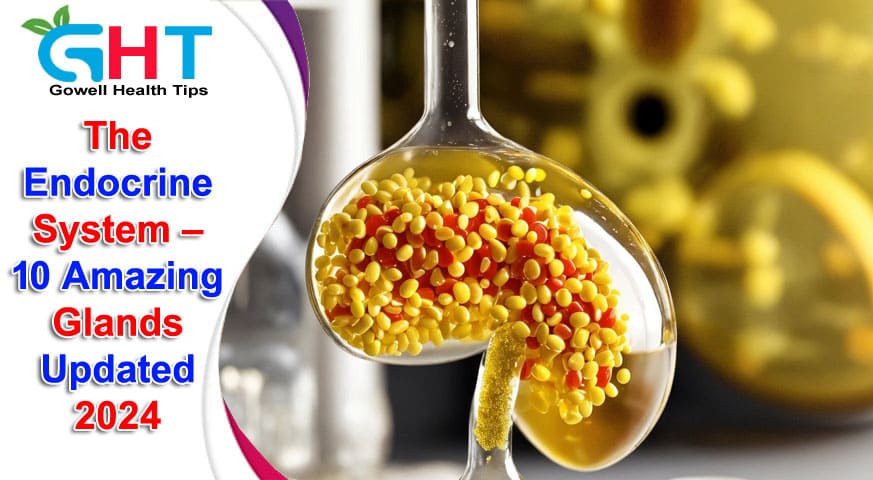The endocrine system is pivotal, orchestrating a symphony of hormones that regulate various physiological processes. At the heart of this system are glands, each with its unique function and contribution to overall health. This blog will explore ten remarkable glands and their extraordinary roles in sustaining life.
Pineal Gland
Deep within the brain lies a small but mighty gland known as the pineal gland. Often mystified as the “third eye,” this gland regulates our circadian rhythms, dictating when we feel sleepy or alert. Its production of melatonin, often referred to as the “hormone of darkness,” is crucial for maintaining our sleep-wake cycles. However, the pineal gland’s influence extends beyond sleep regulation. It’s also involved in mood regulation, with melatonin levels impacting our emotional well-being and mental health.
Pituitary Gland
Moving from the mystique of the pineal gland, we encounter the powerhouse of the endocrine system – the pituitary gland. Aptly named the “master gland,” the pituitary gland oversees the function of numerous other glands in the body, orchestrating a symphony of hormonal activity. Divided into anterior and posterior lobes, this gland produces many hormones that govern various aspects of our physiology. From growth hormone, which regulates growth and development, to prolactin, essential for lactation, and oxytocin, the hormone of love and bonding, the pituitary gland’s influence is pervasive.
Thyroid Gland
Moving down to the neck, we encounter the thyroid gland, another key player in the endocrine orchestra. Often likened to the body’s thermostat, the thyroid gland regulates our metabolism, influencing energy expenditure, body temperature, and weight management. The thyroid gland controls cellular metabolism and growth by secretion of hormones like thyroxine (T4) and triiodothyronine (T3). However, when this gland falters, as in conditions like hypothyroidism or hyperthyroidism, the repercussions can be profound, impacting everything from our energy levels to our mood and cognitive function.
Parathyroid Glands
Despite their small size, the parathyroid glands significantly influence our body’s mineral balance, particularly calcium levels. Situated adjacent to the thyroid gland, these four tiny glands secrete parathyroid hormone (PTH), which plays a pivotal role in regulating calcium and phosphorus levels in the blood. By modulating calcium absorption in the intestines, reabsorption in the kidneys, and release from bones, PTH ensures proper bone health and neuromuscular function.
Adrenal Glands
Perched atop the kidneys like vigilant sentinels, the adrenal glands stand ready to respond to the body’s ever-changing demands. Comprising both the adrenal cortex and the adrenal medulla, these glands produce diverse hormones essential for coping with stress and maintaining internal equilibrium. The adrenal cortex synthesizes cortisol, the quintessential stress hormone that mobilizes resources for the body’s fight-or-flight response, while also producing aldosterone, which regulates blood pressure and electrolyte balance.
Pancreas
Often overshadowed by its better-known role in digestion, the pancreas is a multifunctional gland that also plays a crucial role in endocrine regulation. Within its intricate structure lie the Islets of Langerhans, clusters of cells responsible for producing hormones essential for glucose homeostasis – insulin and glucagon. Insulin facilitates glucose uptake by cells, lowering blood sugar levels, while glucagon stimulates the liver to release stored glucose when levels drop, ensuring a steady energy supply for the body.
Thymus
Tucked away in the chest, behind the sternum, lies the thymus gland, a vital player in our immune system’s development and function. Mainly active during childhood and adolescence, the thymus orchestrates the maturation of T lymphocytes, a type of white blood cell crucial for immune defense. This gland produces a diverse and competent immune repertoire through its intricate thymopoiesis and thymic education processes, safeguarding our bodies against pathogens and foreign invaders.
Ovaries
Exclusive to the female reproductive system, the ovaries serve as the primary source of sex hormones estrogen and progesterone. These hormones play multifaceted roles, regulating menstrual cycles, fertility, and the development of secondary sexual characteristics. Additionally, they are instrumental in pregnancy, producing hormones necessary for maintaining gestation and supporting fetal development.
Testes
In males, the testes are the counterpart to the ovaries, which are responsible for producing testosterone, the primary male sex hormone. Testosterone plays a pivotal role in the development of secondary sexual characteristics, such as facial hair and muscle mass, as well as in regulating reproductive function and libido. Moreover, testosterone exerts systemic effects on metabolism, bone density, and mood, influencing various aspects of male physiology and behavior.
Adipose Tissue
While traditionally viewed as a mere storage depot for excess energy, adipose tissue, or fat, is now recognized as a dynamic endocrine organ in its own right. Beyond storing and releasing energy in response to metabolic demands, adipose tissue secretes various hormones and signaling molecules collectively called adipokines. These molecules play diverse roles in metabolism, appetite regulation, inflammation, and energy balance, exerting far-reaching effects on overall health and disease risk.
Conclusion
The endocrine system’s glands regulate vital bodily functions such as sleep-wake cycles, metabolism, and reproduction. However, disruptions in hormone production can result in various endocrine disorders, impacting overall health. A deeper understanding of these glands enables more effective diagnosis and treatment of such disorders. Advances in endocrine disorders treatment, including hormone replacement, targeted medications, and surgical interventions, offer hope for restoring hormonal balance and enhancing quality of life.







